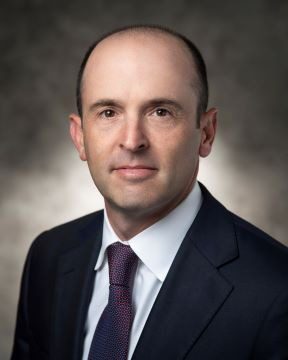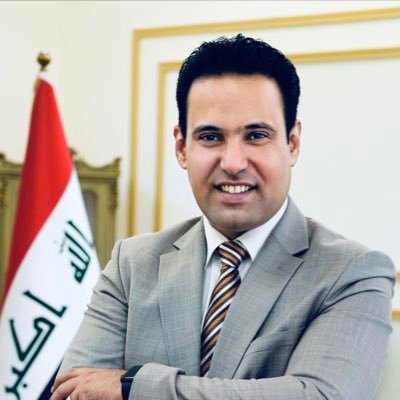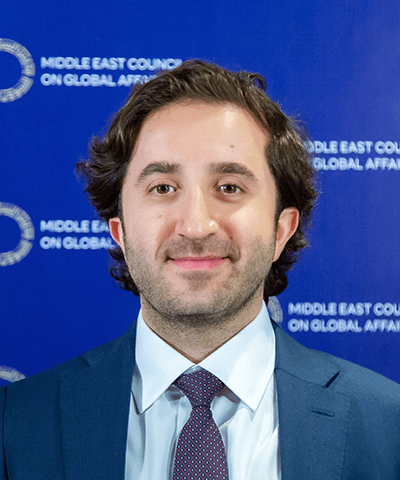The Battle for Iraq:
Can Re-escalation Be Prevented?
September 28, 2022
Summary
The Middle East Council on Global Affairs (ME Council) hosted a webinar discussion on September 28, 2022, about Iraq’s prospects for averting the reescalation of violence. Panelists analyzed the country’s ongoing efforts to form a government, the evolution of the post-2003 political order, and the role of external actors in de-escalation efforts. The panel consisted of a group of distinguished scholars and experts, including Mohammed Shummary, chairman of SUMERIA Foundation; Matthew Zais, nonresident senior fellow with the Atlantic Council’s Scowcroft Middle East Security Initiative; and Hafsa Halawa, nonresident scholar at the Middle East Institute. Ranj Alaaldin, fellow at the Council, moderated the discussion.
Alaaldin opened the discussion by highlighting the importance of Iraq on several levels for wider regional peace and security. Over the past 20 years, the country has suffered at least two civil wars with skirmishes, military confrontations, displacement, and economic disruption. Almost a month ago, Iraq was on the brink of a civil war, an internal conflict between rival political factions and militia groups, in a volatile post-election government formation process. Right now, Iraq seems to have two countervailing forces at play: an effective protest movement, which has done remarkably well given the conditions, and a political class, that is determined to prevent wide ranging reforms.
Shummary analyzed the scene in the aftermath of the election and recent protests, predicting an ambiguous outcome. The same dynamics are at play in Iraq after every government formation, leading to a recurring political crisis. Currently, the process of choosing a new prime minister is complicated. Yet, if the different sides agree on a candidate, it will certainly prevent further escalation, although not easy to reach. Shummary is concerned that more violence will take place, but it will not be as wide of a confrontation as it was in August. He thinks the complexity of the situation is due to the lack of vision for the next stage in terms of priorities and programs to serve the people of Iraq, widening the gap between the political elite and citizens. However, following the violence witnessed in August, all parties will try their best to prevent it from happening again.
Zais touched on the role of the international community and the United States (U.S.) in Iraq. He does not believe that the Iraqi government produced under the current situation might be palatable to work with for the U.S. or the international community going forward. The U.S. has signaled through its actions thus far that it intends to stay out of Iraqi politics, at least publicly, avoiding any public role in Iraq’s government formation. However, Iraq’s neighbors are not similarly abstaining from actively engaging in Iraq’s future. Hence, the U.S. cannot stand by any longer and signs from Congress show that it is not willing to remain on the sidelines of Iraq. Zais explained that the U.S. is looking for a sovereign Iraqi government safe from the influence of its neighbors and their proxies. However, after two decades of U.S. engagement, there are more security forces in Iraq that are not under the state control than there are under its control, which needs to change. Zais added that the Iraqi economy has remained completely dependent on the U.S. Federal Reserve, maintaining the U.S. economic leverage. In terms of energy, the U.S. continues to grant Iraq waivers for the importation of Iranian gas and electricity, which could be revoked if the U.S. was not satisfied with the progress in Iraq. Zais concluded that Iraq needs significant international investments to resolve its crises, which require improvement in the current state of affairs.
Halawa discussed the recent violent events in Iraq and explained that it started with the resignation of Finance Minister Ali Allawi. In his resignation letter addressed to the public, Allawi condemns the spread of corruption through the state’s institutions, systems, and processes. He calls for highest quality leadership with ethical conduct, along with stability, coherence, and continuity in political arrangements. However, Halawa thinks that the system is so rotten beyond any actual change. The only change is that the playfield is becoming more leveled amongst corrupt actors, so no leverage can be exerted by anyone of them. With the resignation of the minister, the gatekeeper of Iraq’s finances, there is no one making sure that part of the government revenues do go to the people or guarantee some semblance in a caretaker position of governance continues. Halawa, explained that while the violence is sporadic, the conflict within the political system is there, has been there, and has completely eroded the state as we know it. The situation has exacerbated due to the massive spoils of oil revenues that were brought to light. The protest movement was the response to these parameters of conflict; yet the political elite continues to completely discredit what has been and remains an organic non-sectarian, non-violent movement. Meanwhile, what is happening in Iran and northeastern Syria shows how militias, non-state actors, and proxies could respond in Iraq as spillovers take place. Halawa concluded by noting that Allawi has endorsed in his remarks armed non-state actors as part of the governance structure of the country’s system.
In the subsequent question and answer session, the panelists continued discussing Iraq’s ongoing political landscape. Shummary echoed Halawa’s concerns regarding corruption. He argued that because the pie of resources was getting bigger, there was more conflict as each of those in power was so intent on taking everything. In addition, there is no reconstruction, no attempt to forge social cohesion or to deliver basic public services. He added that international aid cannot plug this gap. With no government and no budget, violence between communities, or eventually full-fledged civil conflict, is inevitable. Zais then explained that the Iraqi political class has robbed Iraq and the people of what it deserves, a baseline living standard with goods and services that meet the modern definition of decency. Based on the current circumstances, it is less likely that anything will change but an arrangement to sustain the status quo. Zais added that Iraq’s future was based on either an internal or external shock and if such shock was not in the form of protest, then it would involve militia violence, as observed. Halawa touched on regional connections with Iraq and argued that regional efforts provided the previous government with an opportunity to safeguard itself domestically. The Arab Alliance is such an example because it is a tangible reestablishment of a commitment to Arab relationships on how to move forward on investment and other issues such as electricity and energy.
Speakers

Matthew Zais
Nonresident Senior Fellow, Scowcroft Middle East Security Initiative Atlantic Council

Mohammed Shummary
Chairman of SUMERIA Foundation


